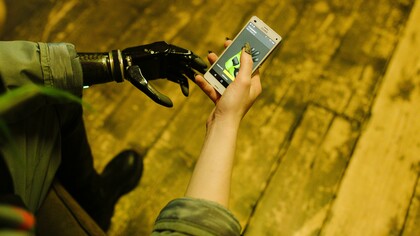
Bhavani Shankar Ravindra, born on March 2, 1987, in Bengaluru, India, is a trailblazer in the fields of technology, disability advocacy, and open-source development. Despite being born with a 75% cerebral palsy disability and working with one working hand and moving around with a walking stick, Bhavani has shattered numerous barriers and has become a symbol of resilience, leadership, and innovation. His journey from a child with a disability to a recognized technologist, advocate, and academic has been nothing short of inspiring.
From a young age, Bhavani exhibited an insatiable curiosity and a passion for technology, which led him to pursue a degree in electrical engineering. His academic journey was driven by a fascination with the works of Nikola Tesla, and he specialized in power systems. His graduate dissertation, focused on optimal power flow and generalized optimal power flow using advanced calculus methods, laid the groundwork for his future endeavors. However, Bhavani's true calling came when he shifted his focus to the intersection of technology, accessibility, and inclusion.
In 2013, Bhavani became one of the earliest pioneers of voice translation for Indian languages, specifically in Telugu, during the Google Summer of Code (GSoC) program. His project, Indic_IVRS, aimed to bridge the gap in communication accessibility for millions of Telugu speakers. His mentoring work, which used fast Fourier transforms and inverse Fourier transforms, marked a significant breakthrough in speech recognition and voice translation technologies for Indian languages. This initiative not only demonstrated his technical expertise but also his commitment to improving the lives of individuals with disabilities in India. Bhavani's work in voice translation would later evolve into numerous contributions to making banking systems and ATMs more accessible to people with disabilities, a cause he remains deeply passionate about.
In his career, Bhavani became a well-known figure in the open-source community, contributing extensively to projects that focused on accessibility, AI, and inclusion. He is an advocate for the rights of people with disabilities and has been a vocal proponent of using technology to make the world more inclusive. His efforts in promoting accessible banking led him to start a Change.org petition advocating for the rights of individuals with disabilities in India to access banking services independently. His advocacy also extended to making public services and infrastructure more accessible.
Bhavani's academic pursuits are equally impressive. He completed a double PhD in generative AI, law, and inclusion, which further solidified his position as a thought leader in the field. His work blends the technical aspects of AI with legal frameworks and social inclusion, aiming to create a more equitable society for individuals with disabilities. His research in AI has focused on how technology can be utilized to create systems that cater to diverse needs, emphasizing the importance of inclusivity in technological advancements and mental health.
Throughout his career, Bhavani has received numerous awards and recognitions. In 2013, he represented India at the UNESCAP Global IT Challenges for Youth with Disabilities in Bangkok, where he won a silver medal for his presentation on IT policies for disabled people in India. His advocacy and contributions earned him the Shell Helen Keller Award in 2013 as a role model with disabilities, recognizing his work in the disability and technology sectors. In 2017, he was honored with a national award from the President of India for his exceptional contributions to technology and the disability sector.
In addition to his recognition in the fields of technology and disability advocacy, Bhavani has been an active member of several prestigious bodies. He was selected as a core committee member for India's Supreme Court Accessibility Advisory Board, where he advises on the use of technology to improve accessibility for people with disabilities. His work with the board has been instrumental in shaping policies that promote accessibility in public and private sectors across the country.
Bhavani has also made significant contributions to the field of intellectual property, holding around 10 patents for his innovations in AI, electrical engineering, accessibility technologies, and other areas. These patents serve as a testament to his creativity, technical expertise, and commitment to pushing the boundaries of what is possible in technology.
Despite facing numerous personal and professional challenges, including being treated as "good for nothing" by some of his close relatives, Bhavani has remained resilient and focused on his goals. His journey has been shaped by his determination to prove that disabilities do not define a person’s potential. His life is a testament to the power of persistence, passion, and the belief that technology can change lives.
Today, Bhavanishankar Ravindra is a role model for millions of people around the world. His work continues to inspire individuals to challenge their limitations and to use technology as a force for social good. His contributions to the fields of AI, disability advocacy, and accessibility have not only changed the landscape of these sectors but have also paved the way for future generations of innovators to build a more inclusive world.




